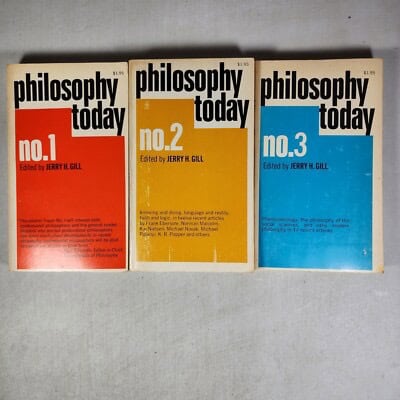My Two Most Successful Books
I have authored around 30 scholarly books and numerous articles in academic journals over my 60-year career as a professor. Only two of those books became popular and generated income. One was my The Enduring Questions, which served as an introduction to philosophy in many college courses over a twenty-five-year span. I “inherited” the book from one of my Graduate School professors, Melvin Rader. I had used Professor Rader’s book many times in my courses during the early years of my teaching. I was surprised when a textbook salesman told me that the book had gone out of print, although the publisher was hoping to find someone to continue publishing a new edition.
To make a long story short, I told the salesman that I was one of the Professor’s students and would be happy to revise the book for a new edition. He said he would submit my name to the publishers. I was quite surprised when the publishers chose my proposal over others for a new version of The Enduring Questions. Dr. Rader had edited the first three editions, and I was selected as the editor of the fourth, and later editions five, six, and seven. Over the years, starting in 1955, this text sold very well, and I earned a significant income from editions four through seven. For a long time, it was the longest and best-selling introductory philosophy textbook

My other notable success in the publishing world was a three-volume series called Philosophy Today, volumes 1, 2, and 3, from the early 1970s. When I began my professional career, I believed that the popular series of books titled New Theology, volumes 1, 2, and 3, could have a counterpart in philosophy. I drafted my proposal for three volumes of essays from current philosophy journals by well-known authors and sent it to Macmillan Publishing Company. After some time, I received a call from an editor there named Clement Alexandre. We had a friendly conversation about my series idea before he said something like, “Well, frankly, Professor Gill, no one up here in New York seems to know who you are.” I responded that I hoped the series would gain recognition once published. He chuckled and said they would be happy to publish at least the first three volumes I proposed.

The Macmillan Company paid me several thousand dollars upfront for each edition scheduled over three years. When I asked Mr. Alexandre what would happen to the money if the books didn’t sell, he replied: “Frankly, Mr. Gill, Macmillan doesn’t publish books that do not sell.” An interesting side note is that Clement’s daughter came to Eckerd College the following year for her first year of college. He and I met when he visited her there. He was right about the books’ sales, and besides the tidy sum of money, I received many congratulatory comments and praise for the series.
Although I have been somewhat successful in publishing other books as well, none have brought me much “fame and glory,” but they did help me secure a few good faculty positions along the way. Once, while walking through the lobby of a New York hotel, a fellow scholar at the conference we were attending saw my name tag and, with a serious tone, asked if I was the “famous Jerry Gill.” I was stunned and replied that I was the only Jerry Gill I knew. Of course, the true reward of scholarly activity lies in the process itself. I know and believe this is true, but I must admit that it helps when others, especially scholars, occasionally recognize the value of one’s work.
One response to “My Two Most Successful Books”
Does anyone ever read these things anymore? I need to know. Thanks, Jerry